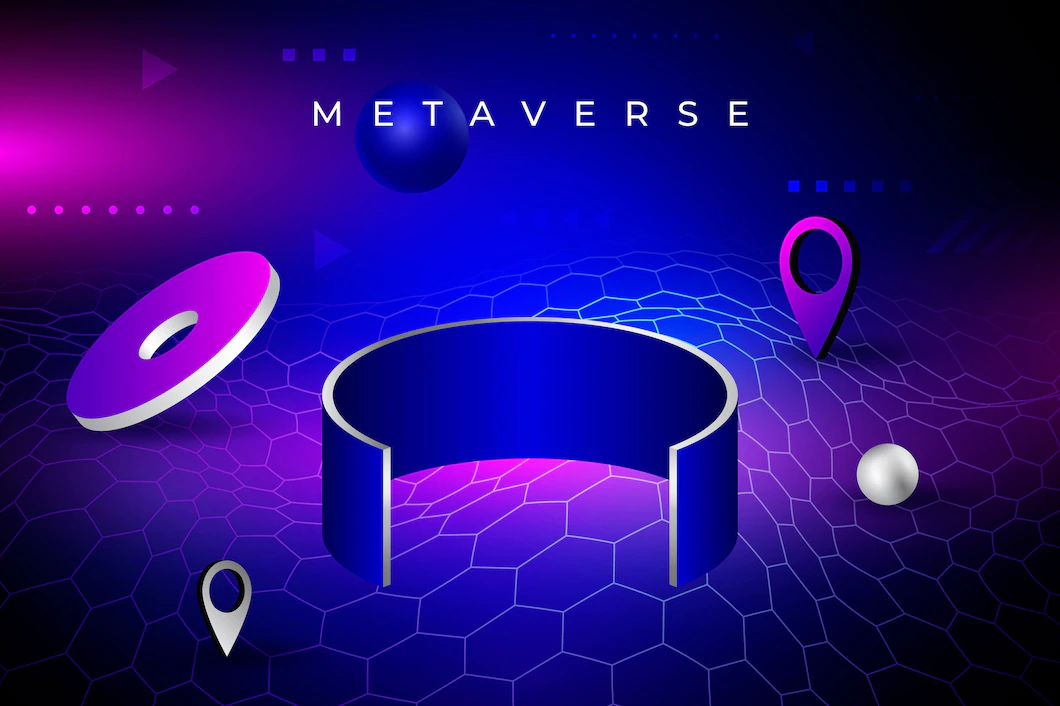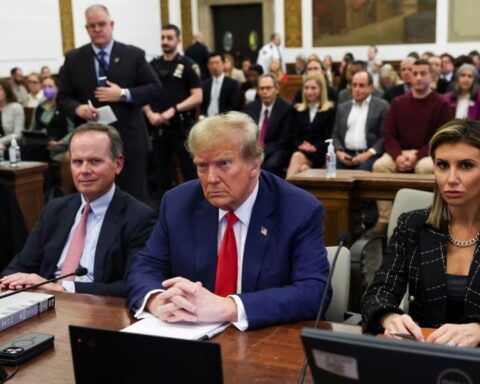Internet-based alternate reality the metaverse is unfurling into a world complete with art, property, and communities all of its own.
Property developers are getting in on the action as non-fungible tokens (NFTs) and blockchain bolster confidence in ownership rights for plots of pixels. Developers’ tenants are also keen to navigate these new dimensions to boost brand recognition among younger consumers.
“Ownership is so simple and also commercialization…everything is going to be in the metaverse,” said Adrian Cheng, CEO of Hong Kong-headquartered New World Development, a major developer of malls, property and hotels in Greater China, speaking at a Jumpstarter event.
Republic Realm, one of the most active developers of metaverse real estate, bought 3 square miles for over $4.2 million in a virtual world called the Sandbox in November, marking the largest virtual real estate transaction ever recorded. Some say the deal is the start of a land rush.
Second Identity
The metaverse blends the sensations of physical shopping with the range of choices offered by e-commerce. Who are the consumers roaming these virtual halls? Not surprisingly, younger generations are early adopters.
Republic Realm’s Managing Director Janine Yorio said the prospect of connecting with Gen Z and Gen Alpha in the Sandbox, a voxelated gaming environment, was “an enormous opportunity” in a statement at the time of her record-breaking deal.
Consultancy Euromonitor found in a survey that 38% of consumers took part in online video gaming at least weekly last year, up from 29% in 2015. Augmented reality (AR) and virtual reality (VR) headset sales climbed 56% between 2017 and last year.
In the metaverse, people can create a second identity using avatars. Many Zoomers see their avatar as the truest form of self-expression, while fashion brands see an opportunity in helping them shape these identities, cementing loyalty to their brands in the process.
“You wouldn’t want your avatar to be running around naked,” said Ralph Lauren’s CEO Patrice Louvet speaking at a retail industry conference earlier this year.
Improvements in AR and virtual reality VR capabilities, as well as lower equipment costs, will ease entry to 3D virtual spaces, such as Swedish furniture giant IKEA’s virtual store on B2C online marketplace Tmall.
Using 3D technology, Chinese shoppers can virtually browse luxury handbag maker Coach’s boutique on New York’s Fifth Avenue, one of the most expensive shopping streets in the world. The American fashion house gamified the experience as well: encouraging shoppers to expand their virtual wardrobes with perks and privileges.
“We see the metaverse as a digital extension, not a replacement,” said New World Development’s Cheng. The Hong Kong-based businessman is showcasing NFT art at his group’s K11 MUSEA mall in Hong Kong, which he may extend into the Sandbox. “It will be seamless in the future,” he explained.
Tmall Luxury Pavilion customers can try on watches virtually, and AI makes sure that they fit snugly on the customer’s wrist. Visitors to Tmall Luxury Pavilion typically spend more than 31 seconds in its interactive section, 12 seconds higher than the average time spent browsing for products on static pages.
Cheng said his businesses, which range from malls to hotels, advise luxury brands to get involved in the metaverse.
“What brands want is to entice customers to express their identity and the metaverse has become the best platform [to do it],” said Cheng.
Ownership
Companies like Animoca Brands are building virtual worlds where occupants can build, own and monetize their digital footprints. In Animoca’s Sandbox project, brands including Snoop Dogg, Adidas, Gucci and The Smurfs have acquired plots.
“The metaverse is a place where we can have true digital ownership,” said Yat Siu, Animoca co-founder & chairman, speaking at the Jumpstarter conference in Hong Kong earlier this month.
Ownership is a complex legal concept that is adapting rapidly in the digital era. An NFT is a unit of information recorded on a blockchain about a good or service that is not interchangeable.
Exactly what rights NFT confers to the buyer is still up for debate. Reed Smith lawyers Sophie Goossens and Nick Breen argue that most NFTs provide more of a service than irrefutable ownership, such as the authentication of a work of art or granting a license, a limited permission to use and enjoy digital art.
The lawyers cautioned those seeking to do business in the metaverse to exercise caution, read up on the risks and limitations of NFTs, conduct robust due diligence and should approach NFTs as they would any other asset.
That said, NFTs assist in bridging the gap between the real world and the virtual world, facilitating a space where creations can be monetized in a world where intellectual property is everywhere.
NFTs still represent a step change from the typical digital relationship, think of an influencer that is active on social media but doesn’t own a stake in the platform. Unlike the physical world where ownership of property involves lawyers rooting through deeds, in the metaverse checking historical ownership is transparent, auditable and quick as it is based on the blockchain.
“Bridging business in to the metaverse, with new services, experiences will be the next exciting era,” said Cheng.






